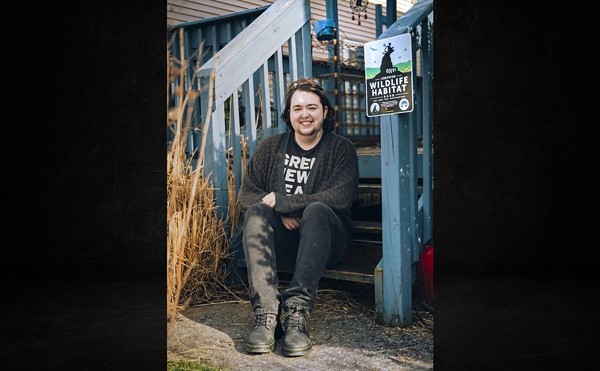The Way, Way Back starts right off with that signature scene from the trailers. Duncan (Liam James), a slightly awkward 14-year-old, sits in the back of an old station wagon that belongs to Trent (Steve Carell), the new boyfriend of his mother Pam (Toni Collette). During the middle of this long drive, Trent decides to reach out to Duncan for a little male bonding on the way to Trent’s summer beach house on the shore. This is one of those moments where the blending of broken families in today’s society begins to take shape. Trent asks Duncan to rate himself on a scale of 1 to 10. Duncan’s obviously uncomfortable with Trent and the idea of this exercise. He knows it’s a set-up. Duncan relents, says he’s a “6,” which Trent immediately refutes, countering with a much lower estimation (“3”). Trent wants Duncan to come out of his social outcast phase and we can see what is to come — the not-so-subtle harassing and bullying that Trent will inflict upon the hapless Duncan.
But what the film, from writer-directors Nat Faxon and Jim Rash (the Academy Award winning scriptwriting team, along with Alexander Payne, behind The Descendants), does from this point on is pull off the neat trick of upsetting our expectations. This carefully developed introduction positions the narrative as the tale of Duncan’s coming-of-age, which will likely feature more than its share of fumbling moments and maybe a sexy awakening for this late-bloomer with a climactic showdown between Duncan and Trent thrown in for good measure.
Fortunately Faxon and Rash have much more on their minds. Duncan certainly is the nucleus of this dramatic atom bomb, but there is a complex collection of protons and electrons rigged together seeking some balance in relation to Duncan. There is the repulsion between Duncan and Trent, but also a precariousness in the interactions between Duncan and his mother. Pam loves Duncan, smothering him at times in the protective cocoon of a recently divorced mother seeking to let her child know that she’s there, but she’s also a single woman trying to establish herself in the dating world again. She’s eager for the attention of a (hopefully good) man who will love her and her son.
Then there are Trent’s beach house neighbors, themselves a broken family unit, floundering even moreso in their dysfunction. Betty (Allison Janney) is a hard-drinking woman whose husband left her for another man. Young Peter (River Alexander) has a lazy eye and devotes all of his time to his Star Wars action figures, while the alluring Susanna (AnnaSophia Robb) seems hopelessly out of Duncan’s league, but there’s something remote and wounded in her early interactions with Duncan that goes beyond his awkwardness.
Yet it is when Duncan flees to a nearby waterpark and encounters the rag tag crew running the place that things change. Ne’er do well Owen (Sam Rockwell) befriends him, offering him a job and what becomes a retreat from the madness of the beach house. More importantly, Owen becomes the father figure Duncan needs, while Owen gains someone to take care of, which propels him out of his state of arrested development.
It is marvelous to watch these performers bounce off James. His character and the story grant them the necessary room to settle into these roles. Rockwell benefits the most. Early on his cocksure attitude seems like little more than his usual guns a-blazing approach (perfectly attuned to the tone here), but as Owen and Duncan grow into each other and the comedy gives way to more dramatic moments, Rockwell’s crazy façade melts away, leaving a genuine tenderness we rarely get to see in him. It is as if, as a performer, he needed this role as much as his character needs Duncan. Actor and character seize the opportunity and refuse to let go and audiences would do well to take note. This is the kind of work that has staying power.
As much as I loved Rockwell, though, somehow the crux of things, for me, came back to Duncan and Pam. The parental dynamic is obviously a theme that resonates with Faxon and Rash (since it was such a wonderfully detailed part of The Descendants) and rises and falls here with such poignancy, flavored with raw emotion and well-timed revelations. Neither James nor Collette overplay their hands, but we never doubt the distance that they must cross on their way back to each other by the film’s end. (PG-13)
Grade: A
CONTACT TT STERN-ENZI:
[email protected]






